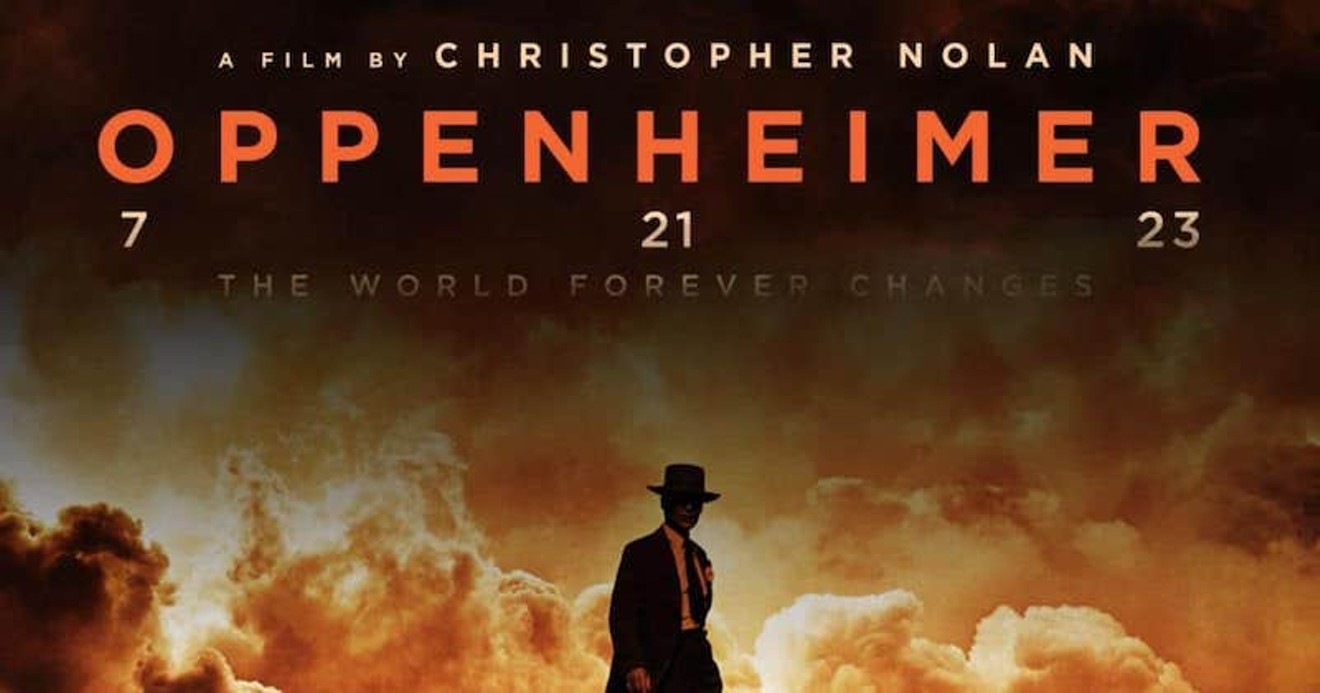Describe This Movie Using One Fletch Quote:
MARVIN STANWYK: "Harry S. Truman"?Brief Plot Synopsis: Won't do any wonders for your nuclear war nightmares.
FLETCH: My parents were fans of the former president.
MARVIN STANWYK: Isn't that nice? He was a good man.
FLETCH: He sure was.
MARVIN STANWYK: He showed the Japs a thing or two.
FLETCH: Dropped the big one.
MARVIN STANWYK: He dropped two big ones.
Rating Using Random Objects Relevant To The Film: 4.5 Power Windows albums out of 5.
Tagline: "The world forever changes."
Better Tagline: "Here comes the boom."
Not So Brief Plot Synopsis: It's 1942 and the world is at war (hence the name). When word gets to the United States that the Nazis are trying to develop a super weapon, General Leslie Groves (Matt Damon) tasks theoretical physicist J. Robert Oppenheimer (Cillian Murphy) to head up a top secret project to beat the enemy to the punch. Will Oppenheimer succeed in spite of his own personal demons? Have you ever read a history book?
"Critical" Analysis: The attempt to create an atomic weapon is one of those formative 20th century American experiences, like the space race or beating the Soviets in hockey at the 1980 Olympics. Only in this case, the stakes were literally existential. If Germany had developed the bomb first ... well, there wouldn't have been a Soviet hockey team to defeat.
Oh yeah, and millions more would have died as the world descended into fascism. Yadda yadda yadda.
Oppenheimer doesn't dabble in speculation. Writer/director Christopher Nolan has no need to embellish much past the Los Alamos scientists using compasses to draw blast radii around American cities to impress the magnitude of the effort upon us. The end of the world is an all too common trope in modern movies, but Nolan and Murphy never let us forget how high the original stakes were.
And Oppenheimer is Nolan at his most, dare I say, conventional? There are Aronofsky-like glimpses into other realities, and antediluvian imagery that wouldn't be out of place in a Malick film, but the narrative is relatively straightforward. The film goes back and forth between the run-up to the atomic bomb and a 1954 hearing which found the scientist defending himself against accusations that he was a secret Communist. However, gone are the timey-wimey hijinks of Tenet and the temporally off-kilter storytelling of Dunkirk.
It perhaps goes without saying, but Murphy is the best he's ever been. He makes sure that Oppenheimer's arrogance, uncertainty, and self-loathing are never far from the surface. This was a man, a theorist, pushed into practical application of what he had hoped would be a boon to mankind. He saw the reality of the nuclear arms race sooner than most, and was ultimately powerless to stop it, and Murphy makes us feel it every step of the way.
And a lot of noise has been made about Oppenheimer being uncharacteristically (for Nolan) sexy. While it's true there are actual sex scenes/nudity, it brings to mind the old adage about whether or not titillation advances the plot and the answer here is...kinda?
You could argue that such scenes establish Oppenheimer's vulnerability (or weakness, Bob was apparently quite the player). There's no Munich-style sex/violence juxtaposition between Oppenheimer and his troubled girlfriend, Jean Tatlock (Florence Pugh), thank the gods, but it's still somewhat incongruous.
Pugh is heartbreaking, but doesn't get to shine as much as Emily Blunt (as Oppenheimer's wife Kitty). Long-suffering thanks to her husband's obsessive career and dalliances, Blunt nonetheless provides needed steel for Bob in the final scenes. And as General Groves, the military director of the Manhattan Project, Damon gets the best lines, and is our layman's gateway into what the hell is going on at Los Alamos.
Yes, this is the story of the creation of the atomic bomb, and that alone would be compelling enough, but Oppenheimer's grappling with the validation of his theories and the realization of the horror he and his team have unleashed upon the world provides the backbone. And the way Nolan and Murphy (with a huge assist from composer Ludwig Göransson) bring that to life is nothing short of brilliant.
The Dark Knight was more crowd-pleasing, and Dunkirk was Nolan at his most harrowing, but with Oppenheimer, the writer/director somehow crafts a nerve-wracking, highly engaging thriller out of a historical event most of us learned about in high school. It's Nolan's JFK — absent the paranoid delusions — and is easily his best movie to date.
Oppenheimer is in theaters today.









